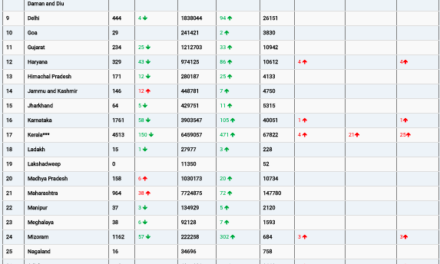
A recent study from the University of Southern Denmark suggests that psilocybin, the primary compound responsible for the psychedelic effects of certain mushrooms, could hold therapeutic potential when administered in small, controlled doses, a practice known as microdosing.
While psilocybin has traditionally been acknowledged for its psychedelic properties, recent research has explored its potential to aid in the treatment of various psychiatric conditions, particularly depression and addiction. This is typically done in conjunction with therapy, where patients undergo a controlled psychedelic experience in a supportive environment with the guidance of a trained therapist.
The study, published in Nature – Molecular Psychiatry, led by Associate Professor Mikael Palner and PhD student Kat Kiilerich from the Research Unit for Clinical Physiology and Nuclear Medicine at the University of Southern Denmark, focused on the effects of repeated low doses of psilocybin on rats, a dosage significantly lower than what is typically used in therapeutic settings, commonly referred to as ‘microdosing.’
Microdosing, a practice popularized in performance-driven cultures like Silicon Valley, has gained traction through personal accounts shared on the internet as a form of self-medication for various challenges.
The study revealed that rats tolerated the repeated low doses of psilocybin well, without showing signs of reduced pleasure, anxiety, or altered movement. Most notably, the rats displayed increased resilience to stress and exhibited fewer compulsive behaviors. Additionally, there was an observed increase in connectivity to the thalamus region of the brain, known to play a crucial role in filtering decisions and concerns.
This change in connectivity could contribute to the enhanced resilience to stress factors and may explain why many individuals report positive effects on their well-being from small doses of psychedelic mushrooms.
This study establishes a valid method for further research into the effects of repeated low doses of psilocybin, providing support for the numerous anecdotal reports of microdosing benefits as a therapeutic intervention. It opens the door for additional research and potentially revolutionary approaches to treating various mental disorders.
Given the increasing interest in microdosing and the legalization efforts in countries like the Netherlands, Australia, the USA, and Canada, understanding the effects and potential side effects of substances like psilocybin is of paramount importance.
Mikael Palner’s interest in researching psychedelic substances and psilocybin was sparked during his time in Silicon Valley, California, eleven years ago. He observed the surge of interest in self-improvement practices, which garnered significant media attention and led to more individuals experimenting with microdosing.
This research project, which Palner has dedicated the past six years to, has now enabled the determination of appropriate dosages in rats, paving the way for further investigation into the effects of microdosing. This has the potential to significantly advance our understanding of the brain and mental health challenges, benefiting both the scientific community and society at large.











